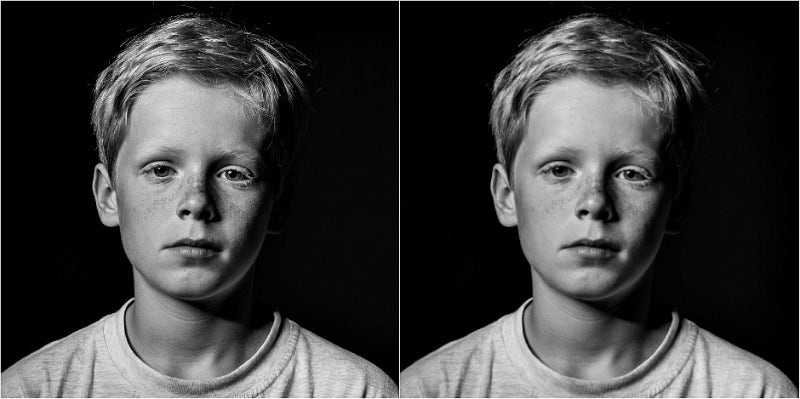What Is Adopted Child Syndrome & How Do Well-Meaning Parents Unintentionally Cause It?
Protect your kid from its lasting effects.
 getty
getty What is adopted child syndrome?
It's a term coined by Dr. David Kirshner in his study of adopted children's behavior that describes the slew of emotional problems — from anger issues to difficulty making social connections — that some adoptees face as a result of poor adoptive parenting.
Of course, no well-intentioned adoptive parent intends to subject their child to the ill effects of adopted child syndrome. But until you're aware of what causes it, you could be part of the problem.
RELATED: Why So Many Adoptees Are Angry
Here are 4 ways well-meaning adoptive parents unintentionally cause adopted child syndrome with poor parenting skills — and how you can avoid it with your kid:
1. They parent without intention.
When adoptive parents don't parent consciously or with intention, they can be reactionary, angry, impulsive, and fearful. That's why it's so important to be aware of the messages and signals you're giving your child through your words and actions. For the adopted child who begin their life with a loss, any behavior from the parent that resembles their loss, reinforces their pain.
2. They haven't dealt with their baggage.
Every one of us has dealt with baggage or some hurtful experience from our past at one point or another. The problem arises when you haven't dealt with yours, because things your kid does will trigger these old wounds.
As an adoptive parent, if you allow something your child does or says to trigger these pain points, you'll likely have an impulsive, angry or fearful reaction toward your child. Reactions like this, for the adopted child, sends the message that they are unsafe and not good enough.
3. They think it's their kids that need to change — not them.
If your child's behavior does trigger your past hurts, realize it's you who needs to change, not your child. Whatever it is your kid has done — whether he left his toys all over the floor (again!) or she wandered off at the park — has triggered your hidden wounds.
That's why you should realize it's not your child that's the problem. It's your child that's bringing your problems to light.
4. They unintentionally shame their kids.
When you react negatively to your child's behavior, you're actually reacting to a part of you or one of your past experiences that's reflected in the current situation with your child. And when these old wounds surface and cause an emotionally-triggered reaction, it's easy to try to place the blame elsewhere — like on your child.
For example, if your child doesn't you show affection (when this is a very normal and common behavior of many adoptees), you might react as if your child is the problem, when in reality, you are reminded of times when you were rejected as a kid.
As a result, you try to "fix" your child's behavior. However, when you're coming from a place of personal hurt — rather than intentional parenting — this can feel like shaming to your child, which is very much like abuse.
To avoid leaving the scar of adopted child syndrome on your kid's psyche, adoptive parents must make conscious parenting choices that nurture the bond you have your child, rather than tear it apart.
Suzanne Jones is an adoptive parenting coach and mother of three. As an adoptee herself, her mission is to help fearful adoptive parents become more confident in their parenting skills and learn the tools they need to best meet the needs of their adopted child. You can connect with Suzanne to learn more about raising a happy, healthy adopted child. For additional guidance and support please read her free e-book, Debunking The Adoption Myth.
YourTango may earn an affiliate commission if you buy something through links featured in this article.
